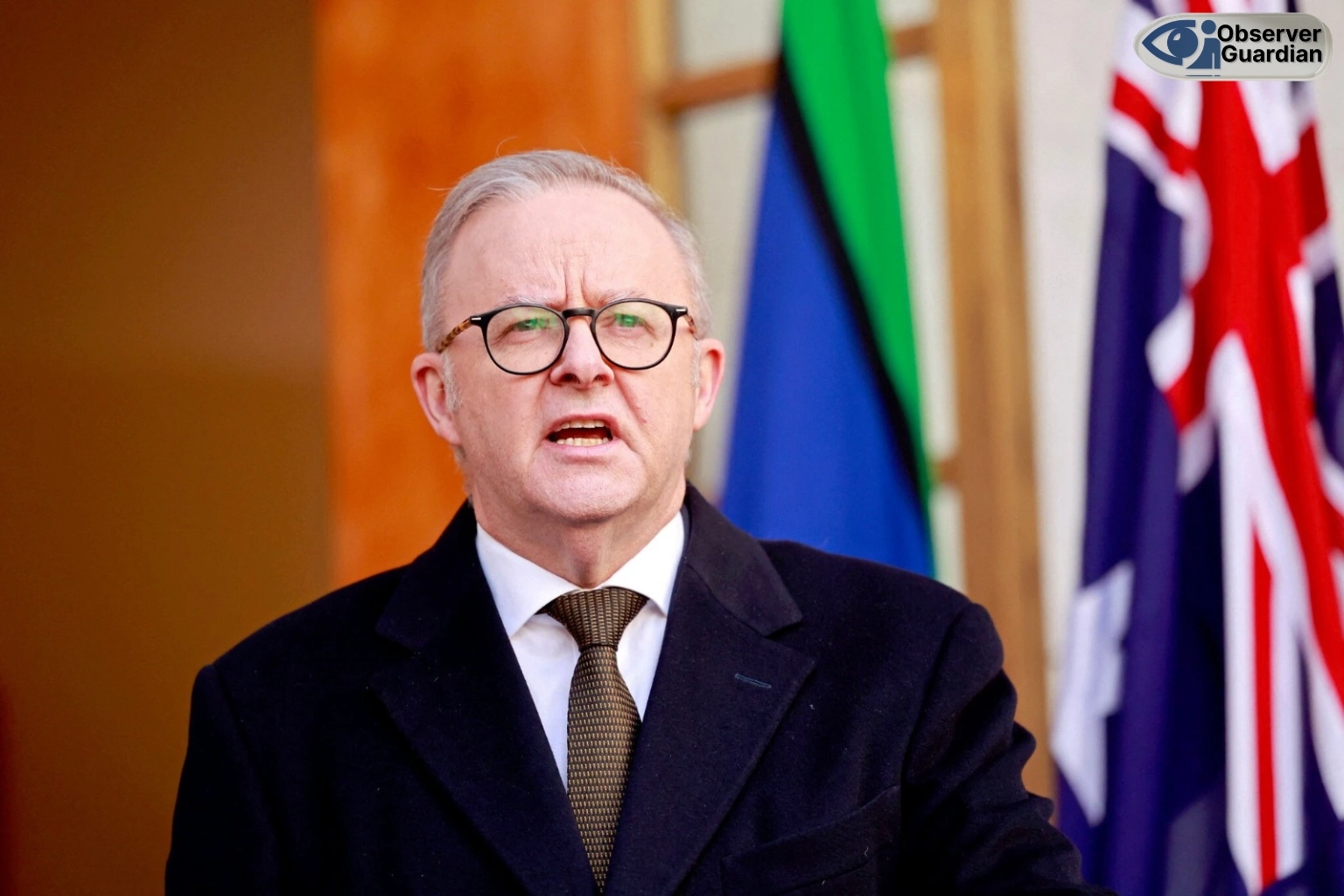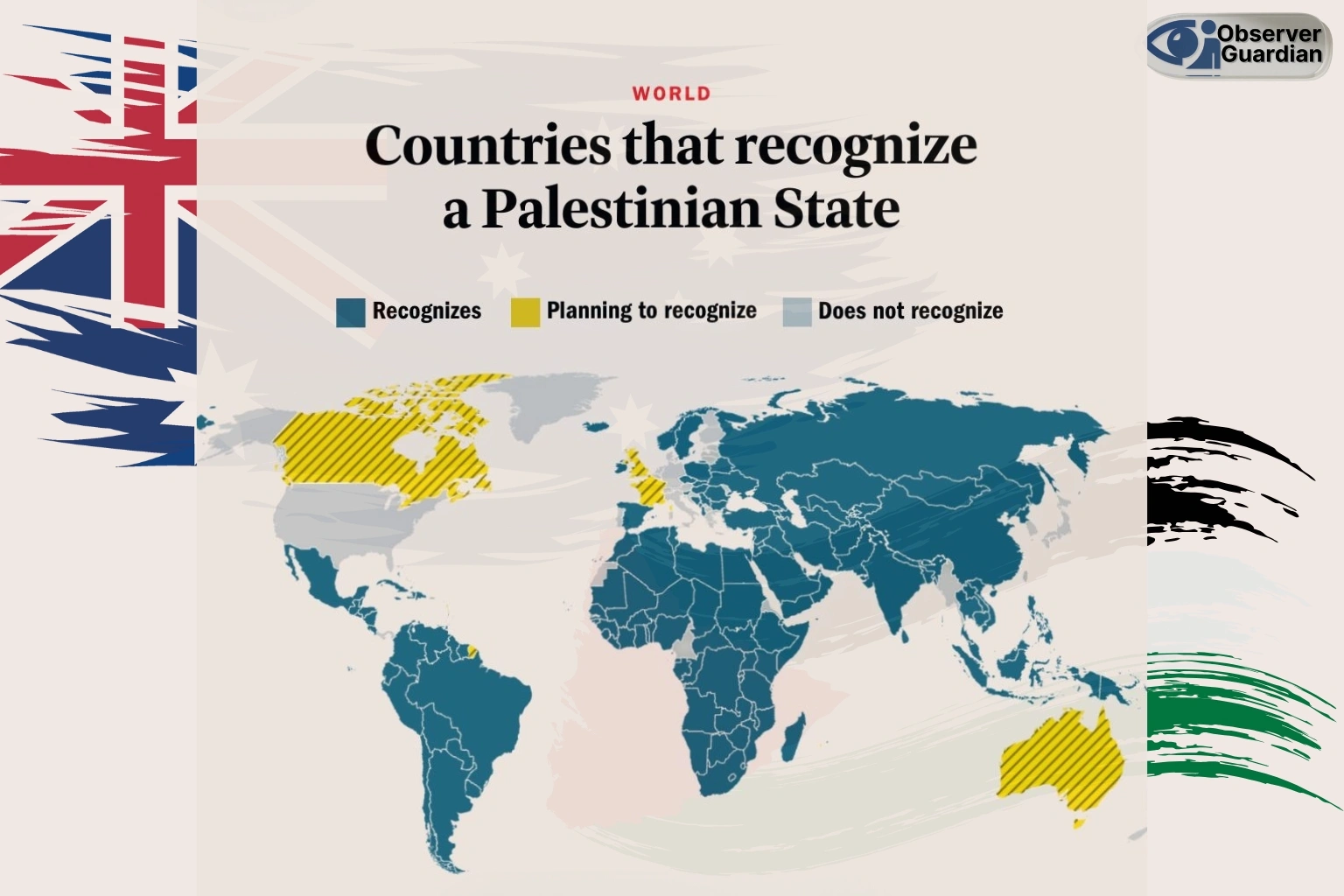What This Means for International Relations
Australia has made a landmark foreign policy change that it will recognize the State of Palestine at the 80th Session of the General Assembly of the United Nations next year in September 2025. The action puts Australia in line with a number of other Western countries such as France, Britain and Canada, which are ramping up pressure on Israel as the Gaza conflict continues and as part of the conflict between Israel and Palestine. It is a decisive step in global endeavors to end one of the longest conflicts of modern history that Australian Prime Minister Anthony Albanese has declared after having held long consultations with certain conditions with the Palestinian Authority.
How does this shape the future of international relations?
The question of the recognition of Palestinian statehood has significant implications on the international relations, especially with its classic allies and in some important strategic entities like the United Nations and the Five Eyes intelligence union. It puts Australia into the company of France, the United Kingdom, and Canada other countries historically considered as western democracies that have recently acted in the same ways, therefore pointing to an apparent growing divide between some of the allies of the US and the US as a nation which is still reluctant about formal recognition. It can be argued that such a repositioning complicates Australia diplomacy to Israel and the United States as well as makes it seem a more principled actor in search of peace and human rights.
The move is controversial at home as well. This decision has been decried by the opposition Coalition in Australia, who promise to repeal the recognition should they regain government’s power. The view that bipartisanship on policy towards the Middle East seems to be cracking is echoed by bigger divides in politics that underlie the debate on whether Israel should be supported or not and whether the Palestinian agenda of rights should be promoted. Such internal dynamics show how issues of domestic politics, diaspora politics, and moral obligation can interact to formulate foreign policy.

The strategic benefit of the Australian recognition is that it increases the international recognition of Palestinian statehood especially at this juncture when it is estimated that a territorial state is not far along across the spectrum. It also ramps up the cries of ceasefire in Gaza and hostage release as it not just a territorial conflict that has to be dealt with but a set of commands on the release of hostage and to create peace, a humanitarian necessity of inhuman sufferings has to be broken at once with extensive red lights.
The international scene also involves the rising international protests against the violence in Gaza with a large number of protests in cities around Australia, and particularly Sydney. The civil society and political leaders of Australia have shown a great deal of solidarity with the Palestinian people as well as re-affirming the belief of the right of Israel to exist in peace. This shows its balancing act which Australia tries to keep in between polarizing tensions in the region.
The move adopted by Australia to accept the State of Palestine in a United Nations General Assembly is a tipping point in international politics regarding the Israeli Palestinian conflict. It is a loudly proclaimed support of a two-state solution and commitment to resolve the humanitarian situation in the Gaza strip by political means. Though the move can strain the relationship with some of its long-established partners, it raises the profile of Australia as a peace and human rights proponent in a severely disturbed region.
References:
Reuters. (2025, August 11). Australia will recognise a Palestinian state at the UN General Assembly in September.
Albanese, A., & Wong, P. (2025, August 11). Australia to recognise Palestinian state. Australian Minister for Foreign Affairs.
CNN. (2025, August 11). Australia to recognize Palestinian state, leaving US increasingly isolated.
Department of Foreign Affairs and Trade, Australia. (2025, August 11). Australia to recognise Palestinian state – Minister for Foreign Affairs.
The New York Times. (2025, August 11). Australia to recognize Palestinian statehood.
Associated Press. (2025, August 11). Australia will recognize a Palestinian state, Prime Minister Albanese says.
Al Jazeera. (2025, August 11). Australia to recognise Palestinian statehood; New Zealand may follow.
The Conversation. (2025, August 12). Coalition declares it would revoke Australia’s Palestinian statehood recognition if it wins office.
CNN. (2025, August 8). ‘The tide is shifting’: Massive Australian protest over Gaza crisis seen as a sign of growing global alarm.
Disclaimer: The views and opinions expressed in this article are exclusively those of the author and do not reflect the official stance, policies, or perspectives of the Platform.







